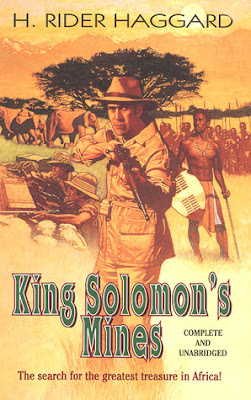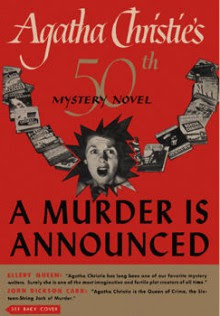 |
| 4 out of 5 stars |
Linda Martin, an
English woman is hired to be a governess for a young French boy. But a
strange terror coiled in the shadows behind the brooding elegance of the
huge Château Valmy. It lay there like some dark and twisted thing —
waiting, watching, ready to strike.
Was it only chance encounter
than had brought the lovely governess to the château? Or was it
something planned? She only knew something was wrong and that she was
afraid. She is unaware of the danger she faces or who to trust in order
to protect the young heir. Now she could not even trust the man she
loved. For Raoul Valmy was one of them — linked by blood and name to the
dark secrets of the Valmy past.
Read to fill the “Romantic Suspense” square of my 2017 Halloween Bingo card.This
Bingo was a great excuse to revisit an old favourite, which only been
slight worn by the passage of time. It is very much a gothic romance,
with the heroine having the usual attributes—she is an orphan, she needs
to pay her way in the world, and she is hired by a French family to
school a young nobleman in English. The young Comte is nine years old
and it takes a bit for Linda Martin to make friends with him and get him
acting like a real small boy, but they manage to make the connection
just before sinister things begin to happen. Has Linda been chosen
because she is an orphan with no real connections in France? Will she be
the scapegoat when young Philippe is killed?
Add the
complication that Linda has fallen in love with Raoul, her employer’s
son, who manages another large family estate. Raoul is as sophisticated
as Linda is naïve, which causes much of the romantic tension, as the
reader wonders whether he is serious or just playing with Linda. Stewart
actually uses Cinderella imagery to reassure the reader—there is an
Easter ball, of course, for which Linda sews her own dress and during
which she dances with Raoul and they agree to become engaged. She has
promised to visit her charge, Philippe, in “the dead of night” so he can
feel included in the event, so she & Raoul take a “midnight feast”
pilfered from the buffet table up to the little boy’s room. On her way
up to the nursey, Linda’s shoe comes undone and she almost loses it,
completing the Cinderella reference.
Nor is that the only literary reference. The book’s title comes from the poem
The Revenger’s Tragedy, a tale of lust and ambition suited to the story line of
Nine Coaches Waiting.
Each of the chapters is referred to as a coach and Linda takes some
kind of conveyance (train, car, plane) in each. The poem also includes a
tempter’s list of pleasures: coaches, the palace, banquets, etc., all
of which decadent indulgences may lure our heroine to overlook the
attempts on her student’s life.
One of the joys of the book for
me was the description of the French countryside and communities. These
descriptive interludes extend the tension of both the mystery & the
romance and give the reader some time to assimilate the clues and try to
see the road ahead. It also gave me breathing room to assess the very
whirlwind nature of the romance, something that I would usually find
unrealistic & therefore off-putting (and which I never noticed as a
teenager reading this novel).
I am delighted to report that I enjoyed this novel almost as much forty years later as I did when I first read it.
























